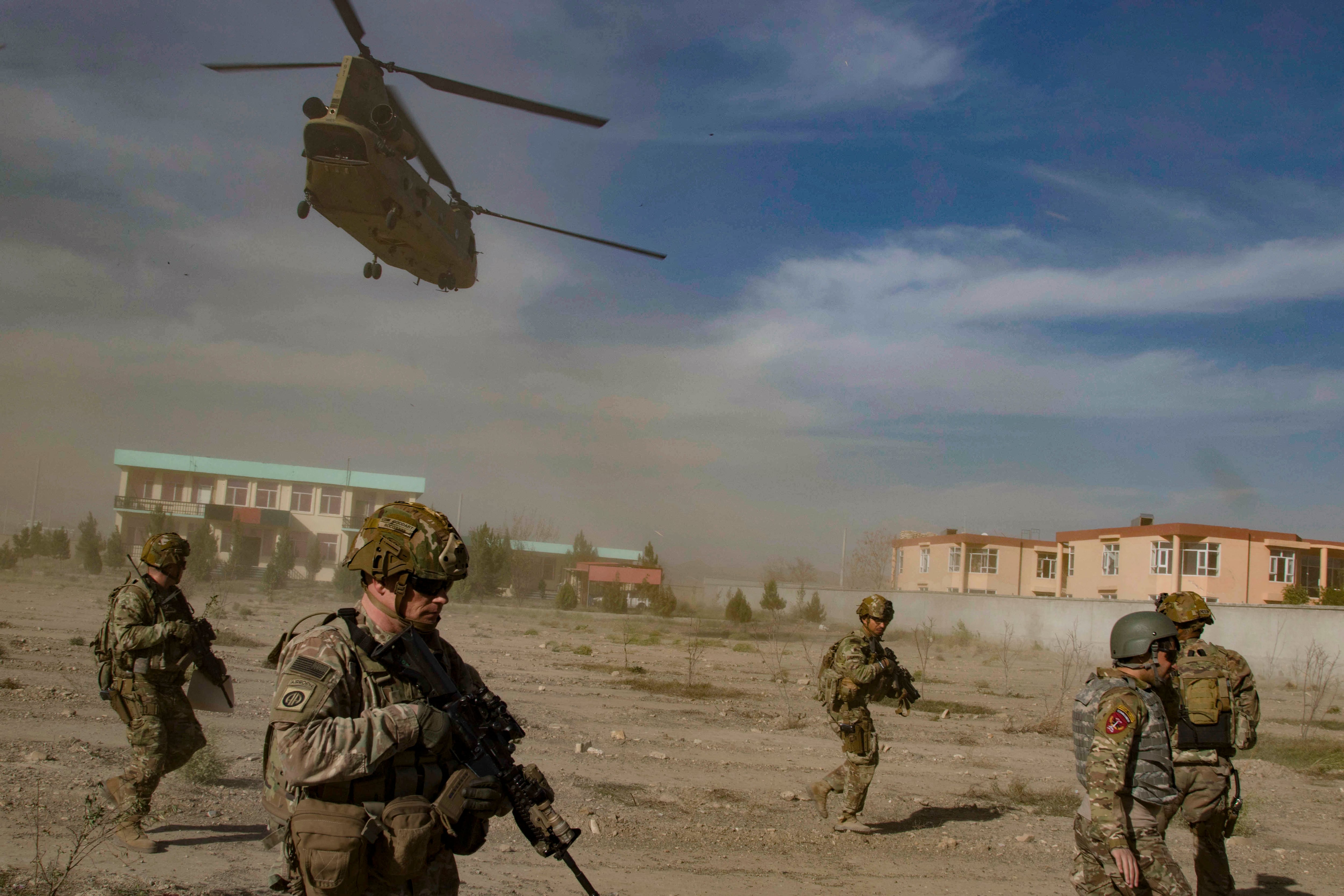Much has been made of the services’ struggles to meet recruiting goals in the last few years, which senior military leaders often blame on a shrinking number of young Americans who meet necessary physical standards, as well as a general drop in overall interest in serving. Some of those struggles may also stem from the messages prospective recruits get from peers and trusted adults, according to new data.
Just over 50% of Americans would encourage a family member or friend to enlist, according to the results of the latest Reagan National Defense Survey, an annual report from the Ronald Reagan Institute designed to take Americans’ temperature on national security issues.
This year’s survey found that while 51% of respondents would encourage military service, 31% would actively discourage it.
The data reflects several narratives that have circulated in recent years, including that the diminishing percentage of the U.S. population who are veterans means fewer people are encouraging the youth in their lives to serve. Elsewhere, many conservative voices have argued that the military’s initiatives supporting diversity and inclusion are turning off their younger peers.
In general, Americans’ esteem for the military has taken a tumble in recent years.
The survey began asking in 2018 about public confidence in the military as an institution, finding that 70% of respondents were highly confident that year. That number steadily fell to 63% in 2019, and 56% in early 2021. Support that year bottomed out at 45% following multiple controversies between President Donald Trump and the military during his administration, and a disastrous withdrawal from Afghanistan in summer 2021 after President Joe Biden took office.
Sentiments have virtually plateaued across the last two surveys, data shows, with 48% high confidence last year and 46% in the latest results.
Researchers have dug deeper in the past two years, first adding questions about why someone felt varying levels of confidence in the military, then this year asking how those opinions would affect someone’s support of a friend of family member enlisting.
“Overall, we did find that about half of Americans would encourage a loved one to join the military; that number is pretty similar among Democrats and Republicans,” Rachel Hoff, the Ronald Reagan Institute’s policy director, told reporters on Tuesday. “But a full one-third of the American people would discourage their loved one from military service. Again, that number is pretty similar among Democrats and Republicans.”
The reasons behind discouraging service fall more along partisan lines.
“The number one reason to discourage service is simply that the military is too dangerous,” Hoff continued.
That tracks with what young people report as well. The Defense Department surveys 16-to-24-year-olds three times a year, asking about their interest in military service. The most recent results found that 70% were concerned about the risk of injury or death, while 65% were concerned about post-traumatic stress or developing other long-term psychological effects.
“But I do want to point out that numbers two and three on the list here are actually the top reasons when you look at the lists just for Democrats, just for Republicans,” Hoff said.
For Democrats, the biggest reason was an anti-war or pro-peace personal stance. For Republicans, it was the current political climate and a general distrust of politicians and politics.
Those responses dovetailed with questions about why respondents reported varying degrees of confidence in the military.
This year, the survey asked whether respondents felt the Defense Department is doing an adequate job balancing national defense with efforts to make the military an appealing place to work.
RELATED

At 47%, Democrats were more likely to respond that the military is striking that balance. Among Republican respondents, 38% felt that the military was “too focused on social issues.”
Slightly more people, 51%, said they would encourage joining the military than the 46% who said they had a high level of confidence in the military.
Hoff pointed to the top reason both parties cited for why they would support a friend of family member joining as a possible reason why those numbers don’t perfectly align.
“It’s about patriotism, service and honor,” she said, which 31% of respondents selected. “And those are things that sort of might exist outside or … those values might rise above any particular concerns around the current military or civilian leadership … which is clearly what’s driving the declining trend overall and institutional confidence.”
Meghann Myers is the Pentagon bureau chief at Military Times. She covers operations, policy, personnel, leadership and other issues affecting service members.








